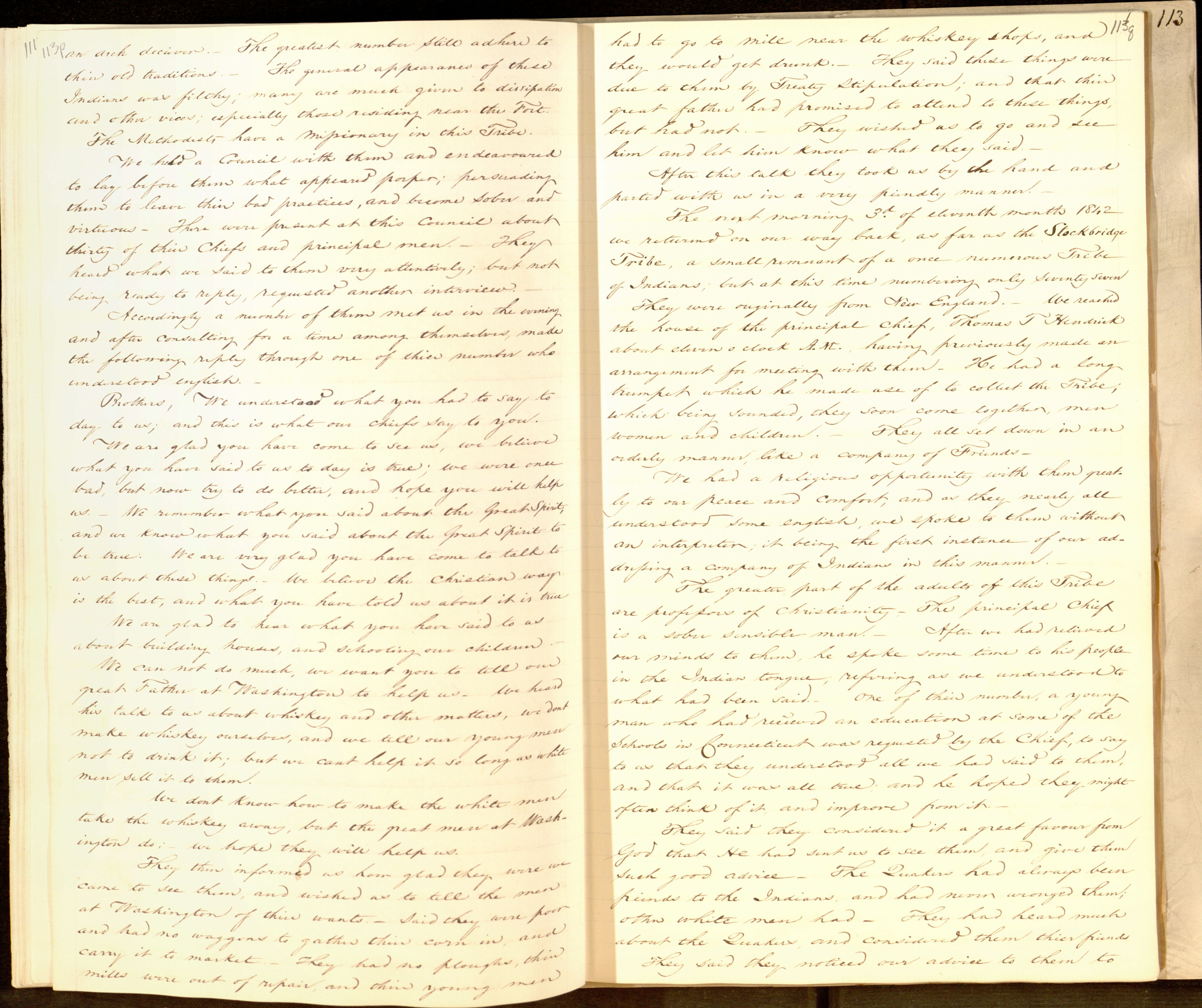an arch deciever. The greatest number
still adhere to
thier old traditions. The general appearances of these
Indians was filthy; many are much given to dissipation
and other
vices; especially those residing near the Fort.
The Methodists
We held a Council with them and endeavoured
to lay before them what appeared
porper; persuading
them to leave their bad practices, and become sober and
virtuous. There were present at this Council about
thirty of their
Chiefs and principal men. They
heard what we said to them very attentively;
but not
being ready to reply, requested another interview.
Accordingly a number of them met us in the evening
and after consulting for
a time among themselves, made
the following reply through one of thier
number who
understood english.
Brothers, We understand what you had to say to
day to us; and this
is what our chiefs say to you.
We are glad you have come to see us, we believe
what you have said
to us to day is true; we were once
bad, but now try to do better,
and hope you will help
us. We remember what you said about the
Great Spirit,
and we know what you said about the Great Spirit to
be true. We are very glad you have come to talk to
us about
these things. We believe the Christian way
is the best, and what
you have told us about it is true.
We are glad to hear what you have said to us
about building houses,
and schooling our children.
We can not do much, we want you to tell our
great Father at
Washington
his talk to us about whiskey and other matters, we dont
make whiskey ourselves, and we tell our young men
not to drink it; but we cant help it so long as white
men sell it to them.
We dont know how to make the white men
take the whiskey away, but
the great men at Wash-
ington
They them informed us how glad they were we
came to see them, and wished us
to tell the men
at Washington
and had no waggons to gather thier corn in, and
carry it to market. They had no ploughs, thier
mills were out of repair, and thier young men
had to go to mill near the whiskey shops, and
they would get drunk. They said these things were
due to them by Treaty Stipulation; and that their
great father had promised to attend to these things,
but had not. They wished us to go and see
him and let him know what they said.
After this talk they took us by the hand and
parted with us in a very kindly
manner.
The next morning 3d. of eleventh month 1842
we returned on our way back, as far as the Stockbridge
Tribe, a small remnant of a once numerous Tribe
of Indians; but at this time numbering only seventy seven.
They were originally from New England. We reached
the house of the principal chief, Thomas T. Hendrick
about eleven o clock A.M., having previously made an
arrangement for meeting with them. He had a long
trumpet which he made use of to collect the Tribe;
which being sounded, they soon come together, men
women and children. They all set down in an
orderly manner, like a company of Friends.
We had a religious opportunity with them great-
ly to our peace and comfort,
and as they nearly all
understood some english, we spoke to them without
an interpreter; it being the first instance of our ad-
dressing a
company of Indians in this manner.
The greater part of the adults of this Tribe
are professors of Christianity.
The principal Chief
is a sober sensible man. After we had relieved
our
minds to them, he spoke some time to his people
in the Indian tongue,
referring as we understood to
what had been said. One of their number, a
young
man who had recieved an education at some of the
schools in
Connecticut
to us that they understood all we had said to them,
and that it was all true; and he hoped they might
often think of it, and improve from it.
They said they considered it a great favour from
God that He had sent us to
see them, and give them
such good advice. The Quakers had always been
friends to the Indians, and had never wronged them;
other white men
had. They had heard much
about the Quakers, and considered them thier
friends
They said they noticed our advice to them to

